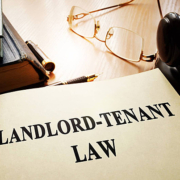Halifax Property Manager Shares How to Build a Good Tenant Reputation in Nova Scotia
Renting a home isn’t just a business transaction—it’s a relationship built on mutual respect. Whether you’re a tenant or a landlord, the dynamic works best when both parties show empathy, kindness, and fairness.
Being a great tenant isn’t about perfection. It’s about being mindful, honest, and responsible. It’s about realizing
that behind every lease agreement is a person—a landlord who worked hard to purchase that property, and perhaps depends on that rental income to pay a mortgage or support their family.
In today’s economic climate, owning a rental property is not easy. Interest rates are high, housing prices have climbed, and inflation continues to affect maintenance and utility costs. Many landlords aren’t large corporations—they’re everyday people trying to stay afloat. That’s why tenants have a role to play in maintaining the integrity of the space they occupy, not just while they live there, but for the sake of the next person who might call that place home.
Let’s talk about a real story (not from Nova Scotia) that reflects why honesty matters so much.
The Tale of the 13 Cats
A tenant told their landlord they had one cat. Reasonable, right? But it turned out they actually had thirteen cats—yes, thirteen. By the time the truth was discovered, the floors were soaked in urine, walls were damaged, and the entire unit needed to be gutted. Thousands of dollars and several months later, the property was finally restored. But by then, the trust was gone.
This kind of situation doesn’t just affect landlords financially—it affects future tenants too. That space could have been someone else’s first apartment, a safe haven, or a temporary home during a life transition. Instead, it became unlivable.
This is why being a good tenant starts with something simple: honesty. If you’re bringing pets, say so. If something breaks, report it. If your circumstances change and you’re struggling to pay rent, communicate early. These little acts go a long way.

How to Build a Good Tenant Reputation: It Comes Down to This
Here are a few principles that separate great tenants from the rest:
1. Respect the Property Like It’s Your Own
Treat your rental home as if it belonged to a close friend or family member. Keep it clean, report maintenance issues promptly, and avoid doing anything that could cause permanent damage. If you wouldn’t do it in a hotel or your parent’s house, don’t do it here.
2. Be Transparent and Honest
From the number of people living in the unit to pets, guests, or changes in your job situation—be upfront. Landlords aren’t mind readers. Being honest builds trust and often leads to more flexibility when unexpected situations arise.
3. Think Beyond Your Stay
Remember that you’re not the last person who will live there. Leave the place in a condition you’d want to find it in if you were moving in next. A little courtesy—like patching holes, cleaning the oven, or taking out the trash—can make a huge difference.
Nova Scotia Laws That Support Landlords in Eviction Cases
While Nova Scotia aims to maintain a fair balance between the rights of landlords and Nova Scotia tenants, certain legal provisions are in place to assist landlords in managing problematic tenancies when necessary. The Residential Tenancies Act outlines several scenarios where landlords are legally empowered to pursue eviction:
1. 15-Day Notice for Non-Payment of Rent
If a tenant fails to pay rent on time, the landlord is permitted to issue a 15-day Notice to Quit. Should the tenant not remit payment within this period, the landlord may proceed with eviction. This process ensures landlords have a timely mechanism to address rent arrears, particularly in situations where communication with the tenant has broken down.
2. Termination for Material Breach of Lease
Landlords are also protected when tenants commit serious violations of the lease agreement. This may include significant property damage, unauthorized subletting, or behavior that disrupts the peaceful enjoyment of other tenants. In such cases, landlords may serve a Notice to Quit, and if the issue remains unresolved, they can initiate formal eviction proceedings under the Residential Tenancies Act.
3. Eviction for Repeated Lease Violations
Even lesser infractions—such as persistent noise disturbances or chronic late rent payments—can form the basis for eviction if they occur on a recurring basis. Nova Scotia law recognizes the cumulative impact of repeated breaches. Landlords can compile evidence of these ongoing issues and present them at a tenancy hearing to request termination of the lease.
Conclusion
Landlord-tenant relationships are about more than contracts—they’re about people. And when people choose empathy, responsibility, and honesty, rental communities thrive.
Whether you’re a landlord hoping for respectful tenants, or a tenant looking for a stable, happy home, it all starts with one thing: being a good human. Everything else flows from there.










Leave a Reply
Want to join the discussion?Feel free to contribute!